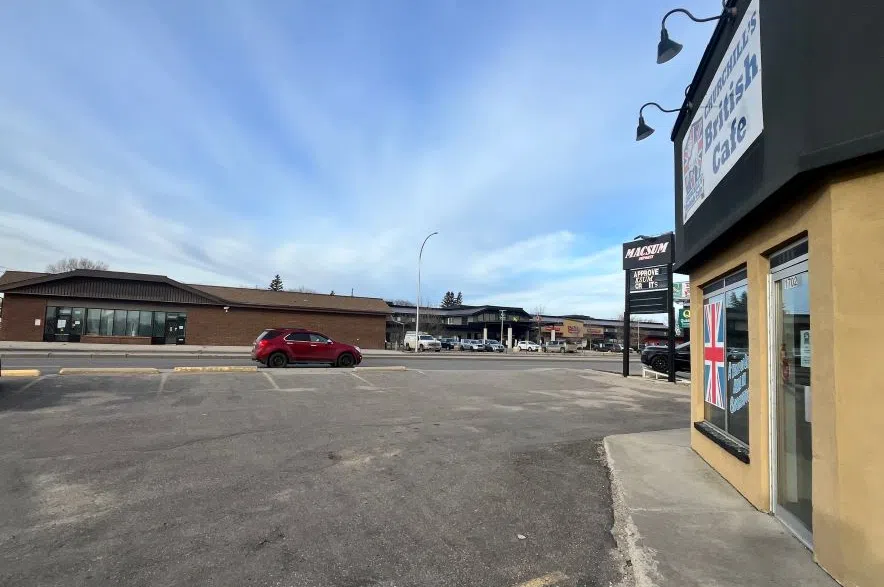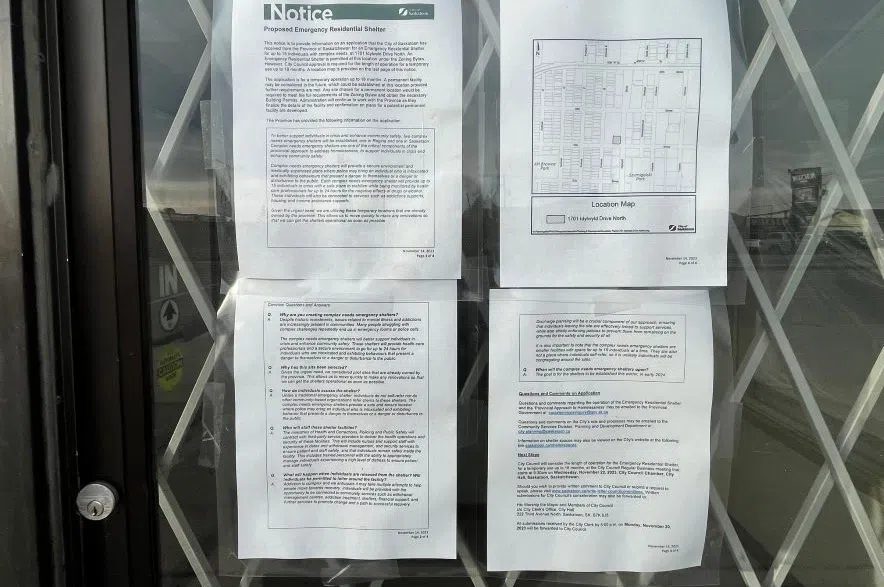In the four and a half years since Churchill’s British Cafe opened on Idylwyld Drive North in Saskatoon, owner Tony Badger said he and his staff have had their fair share of problems.
“We clean up needles twice a week. We’ve had break-ins, attempted break-ins, vehicles have been broken into in the daytime, people sleep out back of our building. There’s been fires there, and people have blatantly come in the store and stolen things,” he recalled.
When Badger got a notice from the City of Saskatoon indicating the provincial government had chosen the former liquor store directly across the street from his business as the location for a 15-bed complex-needs shelter, he wasn’t happy.
“I think that that location across the street will only serve to exacerbate the current situation,” he said.

The site of a proposed 15-bed complex-needs shelter across the street from Churchill’s British Cafe. (Lara Fominoff/650 CKOM)
Saskatoon city councillors will soon debate whether or not to grant permission for a development permit request for the building at 1701 Idylwyld Dr. North to be used as a temporary emergency shelter for up to 18 months. If the shelter is in place beyond 18 months, further approval from the city would be required.
One of the big questions Badger wants answered – by both the provincial government and the city – is what happens to people when they’re discharged from the facility after 24 hours.
Badger said he’s been told clients at the shelter will be given information and offers of mental health and addiction support, but he said that doesn’t address all of his concerns.
“Will they just be walking out of there? What about the individuals that don’t comply? Will they then just be walking out?” he asked.
Speaking with 650 CKOM’s Mark Loshack, Saskatoon Mayor Charlie Clark said the province has assured him that staff at the facility will connect clients with support and services after they’re discharged.
“That’s the critical piece, in my view,” said Clark.
“The positive of this arrangement is that because it is operated by the provincial government, they have direct access to social services and health-care supports.”
Clark acknowledged that it’s not guaranteed that everyone will accept help, which could result in shelter users being released back into the community with their issues unresolved.
Badger also pointed out that there are several establishments in the immediate area where alcohol is readily available.
“If the governments are truly interested in helping, this is not the way to go about it,” he said. “It just seems, overall, there’s tremendous political will. But with that political will, there’s an absence of a plan … It can’t be made up as it goes along.”
When the shelter opens, Badger said the plan for his business is to always make sure his staff works in pairs to ensure their safety.
“There are a couple of other things, which I would rather not say, that we are looking at. We have to ensure the safety of employees and our patrons,” he said.
So far, the City of Saskatoon has received about two dozen letters or requests to speak to council from businesses and residents in the area, many expressing either opposition or concern over the location of the shelter.
Representatives from the provincial government, including the ministries of Social Services and Health, are expected to make a presentation and answer council’s questions about the shelter during a meeting on Wednesday.












